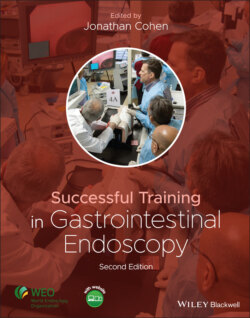Читать книгу Successful Training in Gastrointestinal Endoscopy - Группа авторов - Страница 61
Training in quality assurance and improvement
ОглавлениеIt is important that trainers teach their trainees both the importance of quality and also methods of quality assurance and improvement. The apprenticeship model of postgraduate medical training means that the mentors must have the proper mindset and the institutions the proper support. Faculty must be good role models for their trainees in their adherence to best clinical practice. The institutions should establish QA and QI programs that include trainee participation. These are skills that trainees can then take with them into their own practices.
Specific curricula in quality assurance and improvement for trainees are unusual. Most institutions have lectures on obtaining informed consent and medicolegal responsibilities. It is also common to have morbidity and mortality conferences where complications and adverse events may be discussed with the goal of improving quality and patient outcomes. Most other aspects are learned through the apprenticeship of the training program: preprocedure patient assessment, proper indication, proper procedure performance, procedure reports, communication with referring providers, etc.
Specific curricula in QA and QI would include didactic lectures on quality assurance and improvement topics, drawing from the rapidly expanding literature. They should focus on the quality improvement cycle: measuring quality indicators to identify areas of underperformance, instituting an improvement plan, and then remeasurement to document improvement. Trainees could immediately begin to incorporate relevant quality indicators into their own training (e.g., cecal intubation). Measuring these indicators during training could be used to track performance improvement and ultimately to document attainment of procedural competency.
